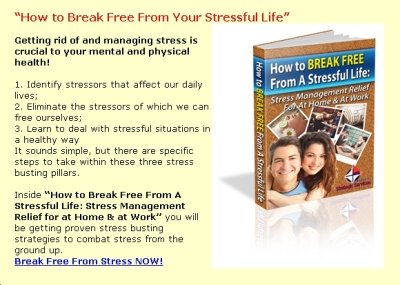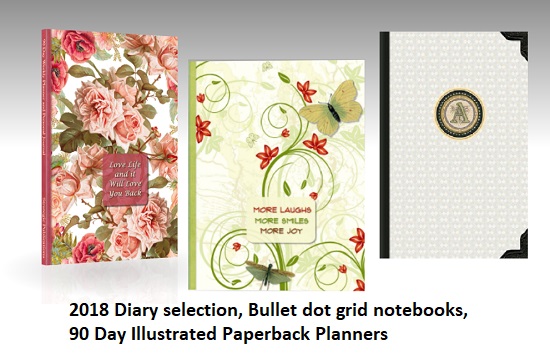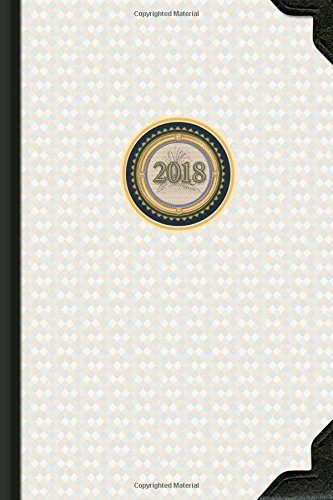Hi there
Thank you for subscribing to my self help & inspirational motivation ezine!
 INDEX:
INDEX:
Inspiring Power Quotes
Editor’s Note by Helene Malmsio
Self Help Report: "Handling Stress Before It Happens"
Sponsored Resources
Get Motivated!
Healthy Power Tip
Your Free PLR Article: "4 Tips to Make Better Compost"
What's New?
Have a Laugh!
Daily Self Reflection
I hope you enjoy reading "Power Tips" e-zine as much as I do writing it.
Thank you to my readers who refer other people to my ezine.
If they want to subscribe for the next edition, they can just visit the website and subscribe here:
ezine subscription
If you ever decide that you want to unsubscribe, you will
find the link at the bottom of this page. (But I'll be really sad to see you go!)
If you haven't already done so, its time to collect your other subscriber gifts, including a set of sample PLR articles and also my report on how to use PLR to slay your competition.
Grab them by clicking on the download links here:
PLR Report
Sample Pack of PLR Articles
~*~*~*~*~*~*~*~*~
Inspiring Power Quotes For This Week:
"What separates those who achieve from those who do not is in direct proportion to one's ability to ask for help." - Donald Keough
"You only have to do a very few things right in your life so long as you don't do too many things wrong."
- Warren Buffett
"It is wise to keep in mind that neither success nor failure is ever final."
- Roger Babson
"Success is a journey, not a destination."
- Ben Sweetland
"To guarantee success, act as if it were impossible to fail." - Dorothea Brande
"Success is often the result of taking a misstep in the right direction."
- Al Bernstein
"You can do it if you believe you can."
- Napoleon Hill
Learn more of our how to do it tips for motivating yourself every day by using free daily
motivation and also get inspirational quotes.
Editor’s Note by Helene Malmsio
 Stress. I publish a lot about it, because I know it well, I was addicted to the Adrenalin surges from it, and I suffered the health consequences of chronic stress.
Stress. I publish a lot about it, because I know it well, I was addicted to the Adrenalin surges from it, and I suffered the health consequences of chronic stress.
One day I finally woke up to what was happening to me, my life, my happiness, and the fact that the joy was being sucked out of my life.
This is one of the reasons I have published my series of self help books, especially the first ebooks about Stress Management, along with the Time Management one, because you need to start learning key life skills somewhere, and books are a great place to begin!
Learn from my experience, you don't need to experience all the problems yourself to learn the lessons... you don't have that much time - LOL!
So, if you have struggled with stress, and wondering why you can't get on top of it
to reduce the stress levels in your life, this week's self help report should be useful for you. I hope so.
O.K. Lets begin with this weeks Power Tips report for you... ENJOY!
Report:
"Handling Stress Before It Happens"

Stress is something that everyone in the world will experience. Some of us deal with a lot of stress – others, not as much. But one thing that we all have in common is that we all have a reaction to stress.
When something happens to cause stress, we’ll react in either positive or negative ways. The way that you deal with stress can affect you more than just at the time that you’re dealing with it.
Your reaction to stress on one day can affect you emotionally the next day, and even the day before if you’re bracing for it. Unfortunately, there is no escaping stress and there are varying degrees of stress and causes behind it.
Stress Happens to Everyone
There are no groups of people or any single individuals who can avoid stress. Stress doesn’t fit neatly into any one category like a one-size-fits-all event. There are different levels of stress that will vary, depending on the person who’s
dealing with it.
There are also different reasons and different times for stress to occur. You might experience more stress at a certain time of the year than other people do. However, stress does fall under the heading for four basic types.
The types of stress are encounter stress, time stress, situational stress and anticipatory stress. With encounter stress, this has to do with the relationships in your life.
This covers your intimate relationships, your work relationships and even stranger or acquaintance relationships.
This type of stress can be low or high level. When you experience this type of stress, it doesn’t mean that you’ve actually been in a situation with someone and it’s caused you to feel stress.
You can fret and fear about an encounter before the actual encounter even happens. An example of this would be an upcoming meeting with your boss. He’s requested to see you and you have
no idea what it’s about.
So you begin to stress and create scenarios in your mind about what it could be. You can “what if” yourself into imagining that he’s going to fire you.
From there, your mind can spring to how you’re going to pay your bills and how you’ll find another job.
The type of life that you have can often determine whether you have a high stress level due to encounter stress.
People who work in jobs where there’s a great deal of emotions (such as in a hospice care group) might have a higher rate of encounter stress than other people would normally have.
Time stress can occur when you’re feeling overwhelmed with everything that you have to get done - so you fret that you don’t have enough time. You “what if” that you’re not going to get everything done and your stress level rises.
An example of this would be
having to be somewhere for an important meeting that you absolutely can’t miss and things crop up to put you behind. Sometimes people will engage in time stress before there’s even an issue.
This “what if” worry can make them feel anxious and depressed because they worry how it will affect their future. The panic it causes can result in even more stressful situations to occur.
Situational stress is what happens when you’re in a situation that causes immediate stress. An example of this can be a car accident, a child becoming ill or a job loss.
In situational stress, it’s the situation that causes the worrying and the emotions that go along with it. This kind of stress can be short or long term.
Anticipatory stress is stress that you get because you’re anticipating something that’s coming your way. This might be having to give a speech or wanting to ask for a raise. It can also be about something that’s not even on
the horizon.
It’s a fear that the other shoe is going to drop. This type of stress is the kind that has the most “what if” worry involved with it because it’s focused on things that haven’t even happened – and may never happen!
And when the things that you worried about do come to past, they often don’t look anywhere as frightening or terrible as what you thought they’d be. The levels of stress are chronic, acute and episodic acute stress.
With a chronic stress level, you would feel this stress on a long term basis. This might be something like being stuck in a job that you hate because it drains you emotionally.
Or it could be something like being in a relationship with someone who isn’t healthy for you to be around.
Chronic stress can often make you feel like you’re stuck - like life will never change or get better for you. You can feel a great deal of pressure. This can come from a financial
setback such as losing a home to foreclosure.
It can stem from a trauma. Chronic stress can cause people to view the world differently and learn to push down emotions in an effort to try not to think about what you’re dealing with.
An acute stress level is what most people deal with - and it’s the best level of stress to have. This level of stress comes and goes fairly quickly.
While there is pressure and fear sometimes associated with it, it doesn’t last.
An episodic acute stress level means that there’s a constant hamster wheel of stress. It can feel like your life is on fast forward, like you’re part of the rat race and you can’t stop or everything would go haywire.
People who end up with this level of stress experience it often because they haven’t learned to say no to demands on their time.
They often focus on too many things at once. Their level of stress is easy to see in the way
that they can never seem to relax and let things go.
Worrying About Stressful Situations Affects Your Health
Thinking about a problem or wondering what’s going to happen isn’t the same thing as worrying about it.
When it crosses the line is when you begin to “what if.” You might “what if” about an event, a person or an unknown future.
Plenty of people will “what if” in their mind. Unfortunately, most of them create all sorts of “what ifs” that have a negative aspect to the thoughts.
From that negative “what if” can spring a ton of stress that can turn into long term stress if the habit isn’t broken.
There’s nothing wrong with thinking “what if” when you’re trying to brainstorm and come up with a purpose or a plan to deal with stress. But if you do random “what ifs” where you let your mind wonder from one bad possibility to the next, this is futile and can even be bad for your health.
This kind of “what iffing” is a stagnant process that doesn’t get you anywhere. It’s like sitting in a rocking chair moving back and forth and expecting to get from point A to point B.
This negative “what iffing” doesn’t help anything and all you gain is fear and a sense of foreboding about the situation or your future.
When you engage in unproductive, negative “what ifs,” you can start to experience a host of various health problems.
You can develop headaches or stomachaches. You might start to encounter muscle problems. Worrying about stress is bad for your heart health.
When you worry about stress, studies have shown that this habit is known to cause high blood pressure, tachycardia and shortness of breath.
Worrying about stress can even cause heart disease. The reason that it can do this is because when you worry about stressful situations, your body gets an influx of stress hormones.
Having a regular dose of stress hormones puts additional pressure on your heart because of the high blood pressure that goes hand in hand with raised stress hormones.
Besides affecting your body’s health in a myriad of ways, worrying about stress affects your emotional health and your mental health, too.
If you worry about stressful situations to the point that it becomes an ongoing habit, you can be at risk of having a mental breakdown.
This usually happens when thinking about and dealing with stress reaches the point where a person simply can’t deal with it any longer. When that happens, he or she can lose the ability to go about their day as they normally would. There is also the risk of CFS or Chronic Fatigue Syndrome from all the adrenal stress toxins you body is enduring on a daily level.
It’s an
abnormal response to stress that’s linked with worrying about stressful situations and feeling like there’s no relief for the stress in sight.
When worrying about stressful situations reaches the point where someone is having trouble eating and begins to deal with insomnia, that’s the point where something must be done immediately to alleviate the worry.
Report continued below...
Sponsored Resources:
Our Sponsors and Affiliates are what keep this newsletter and the weekly gifts free to you, so we appreciate your support when purchasing from our sponsors.
~*~*~*~*~*~*~*~*~
I'm an author who has published over a dozen self help and natural health ebooks and paperbacks, so in this section I'll usually feature one of my books for you to check out.
Just click on the book banner below to see the full range of topics
Need to learn how to manage stress better ..? Check out my self help book about How to Break Free From a Stressful Life


~*~*~*~*~*~*~*~*~
ADVERTISERS:
If you have a product or service that you would like to feature here for our subscribers, we feature approved classified ads here for only $17 per edition, so please Contact me me to book your advertisement (or an advertorial article).
~*~*~*~*~*~*~*~*~
Please do check out my new range of 2018 Planners and Organizers! Just click on the Journal images below to see the selection in the range.
Or if you want Monogrammed Planners, check out a sample on this link: Monogrammed A 2018 Diary Monthly & Weekly Planner: 12 months with Contact & Password lists & spare Note pages 8.5 x 11 and there are also planners and diaries 6"x 9" to suit your needs.
They work. They make you happy. Use them.

"Handling Stress Before It Happens" Report continued...
The 4 Types of Pre-Meditated Stress Analysis
People cope with stress in different ways. These coping mechanisms can be labeled four different ways. The first one is problem analysis.
With this type of coping mechanism, people think about the problem.
This way of thinking usually means the person is using “what if” in a positive way. They’re not simply turning the problem or situation over and over in their minds.
They’re looking for how they can define exactly what the problem is.
This is the first step that often motivates people to reaching for a solution to the problem. When someone engages in problem analysis, they can see the problem objectively without internalizing it to the point that they dwell on it long term.
This kind of coping mechanism is highly effective and doesn’t lead to emotional or physical problems that can happen with dwelling on a stressful situation.
The
type of people who use this method are the type that are able to separate their lives and self-worth from the problem.
They can look at something that needs to be solved and then lay it down without it causing them to lose sleep.
The second type of coping mechanism is plan rehearsal. Someone who copes this way is usually an analytical thinker.
He or she won’t dwell on negative “what ifs.” Instead, this person will think about what he can do to bring the situation to a resolution.
Someone using this coping mechanism rarely thinks that there isn’t a solution to a situation regardless of what the situation is.
The person who deals with stressful situations this way usually comes up with several solutions and analyzes each one for the best outcome.
People who use plan rehearsal don’t usually carry a stressful situation over into the next day emotionally.
Stagnant deliberation
is one of the poorer methods that people use when dealing with stress. This is the type of person who will “what if” and think about the problem, but won’t get anywhere.
They don’t come up with a solution and so they don’t move forward. With stagnant deliberation your emotional and physical health can be affected to the point that it can make you ill.
The fourth coping mechanism is outcome fantasy. With this way of dealing with stress, people fantasize or daydream that they won’t have to deal with the problem because it will be somehow magically solved.
This coping mechanism can affect emotional and physical health as well. It’s rare that a person always uses just one type of coping mechanism.
You can use a mixture of all of them but the type of people who use problem analysis and plan rehearsal don’t get stuck in the “what if” or the negative thinking about stressful situations. They might pause there, but
they don’t get stuck.
How to Make an Action Plan Ahead of Time to Handle Stress
By knowing how to act rather than react to stress, you can handle stress before it becomes an issue. In every situation that happens, prioritize it. Ask yourself if the situation is yours to handle.
Too many of us deal with things that we don’t have to deal with. We take on other people’s stress. We handle things for friends, a spouse and coworkers that we shouldn’t take on.
It can be tempting to want to help and to want to fix someone else’s stress, but that’s a way to quickly become overwhelmed and stressed yourself!
Don’t take on situations that you already know will have a stressful outcome.
For example, if every time you visit a certain relative that you don’t get along with, and your stress levels hit the ceiling, don’t visit.
Or arrange the visit where you have control
of the outcome - such as not inviting him or her to your home, but going to theirs instead so that you can quickly get out when you need to.
Take action steps to handle stress before it happens by identifying where you feel the pressure start to build. If you know that you’re going to be pressed for time, then look at what has to be done.
Use to-do lists and pare it down to only the necessities to get you through that day or week. Let go of things that don’t matter in the long run for your health or happiness.
Give yourself extra time to accomplish tasks and learn to say no to things - and people - that will eat up time to the point you know it will cause stress to begin.
Don’t focus on the things that you can’t control. For example, if you have a joint project with a colleague and you’re ready with your part, but he isn’t, don’t focus on what he didn’t do.
All you’re responsible for is what
you were supposed to do. Let that person suffer the consequences rather than you suffering the stress.
When you know that a situation is coming up that has the potential to turn stressful, take the time to write out a list of possible solutions.
For example if you’ve heard that your company is going to be laying people off, instead of worrying about it, write down all of the steps that you’ll take if it does happen. Once you do that, let it go. You’re prepared!
Don’t give in to negative “what if” thinking. You don’t want to attempt to cross bridges before you even come to them. You might find that the bridge never even appears in your life and you don’t want to waste time needlessly.
~*~*~*~*~*~
I hope you enjoyed this self help report and will put the information to good use!
You can learn more about enjoying better times with your family and partners in life by learning how to manage stress better, so that you are more confident in dealing with the various triggers you will encounter in life and at work.
There is a ton of useful resources and training guides online at my website including my ebook download filled with stress management techniques, so please visit and have a jolly good look around at all the content subjects. You will learn a lot at my self help supermart - and its all free.
And please, as I keep asking, do let me know what your most desired self help topics are, and I'll try my best to publish exactly what you are looking for
~*~*~*~*~*~
Get Motivated!
Here's a Free Motivational Social Media Graphic For You To Enjoy and Share!
All you need to do is to right click on the image and select "Save image As" to download it to your computer.
Feel free to download and share the social media image below with your friends and family - ENJOY!

Healthy Power Tip:
Obesity
Obesity is becoming an epidemic in developed countries such as the US. Ideally, it would be a good idea to prevent your weight from ever exceeding acceptable levels but if you become obese, you can always start developing good eating and exercise habits at any time in order to lose weight.
You can find out whether or not you are overweight by taking your weight in pounds and dividing it by your height in inches squared, multiplying that by 703.
A value over 25 means you are overweight and a value over 30, means you are obese. There are also BMI scales to quickly determine where you land in order to assess obesity.
Obesity poses a number of serious health risks, including, heart disease, stroke, type 2 diabetes (that comes with its own set of hazards) and premature death.
You can get control of your weight, and there are many healthy ways to do so. Seeking the guidance of a nutritionist is a great place to start.
Your Free PLR article:
"7 Ways to Prevent and Cope with Delayed Onset Muscle Soreness (DOMS)"
I'm getting back to updating the PLRhub.net site with new PLR content for you, which you can check on the directory page here: PLRhub Article Packs and also have a catalogue that you can review and just check off the packs you have already purchased.
You can grab the latest version here at any time (right click to download): Strategic Services PLR content Catalogue
~*~*~*~*~*~*~*~*~
"7 Ways to Prevent and Cope with Delayed Onset Muscle Soreness (DOMS)"
Delayed onset muscle soreness (DOMS) refers to the muscular aches and pains that you experience anywhere from 24 to 48 hours after a workout.
This pain could be due to microscopic tears in the muscles because of weight training or it could lactic acid production in the body when the training takes on an anaerobic nature.
While doctors have not been able to fully determine the cause of DOMS, the general consensus is that it’s not harmful and your muscles will only ache if they’re stretched, contracted or you place pressure on them.
For example, if you did several sets of barbell squats today, your thigh muscles may be aching badly the next day.
However, if you’re sitting or lying down, the muscles won’t hurt. It’ll only hurt when you walk, squat or do other movements that affect these muscles.
Generally, the pain will dissipate after a few days. So,
there’s really nothing to panic about.
In this article, we’ll look at 7 ways you can help to alleviate the aches and pains in your muscles.
1. Foam rollers
Foam rollers are great for helping to get the blood circulating around your muscles.
You can purchase one of these from Amazon or your gym might have a few for you to use. By using foam rollers, you can enhance your recovery time and also reduce muscular fatigue and pain.
All you need to do is lie on the roller and roll on the affected areas. Your bodyweight and gravity will do the rest.
The roller will apply pressure on the tight muscles and improve flexibility and sort out any ‘kinks’ in the muscles.
2. Compression tights
Compression tights are most effective when worn during the actual workout to prevent DOMS. This especially applies for training that involves the leg muscles such as running or resistance training that targets the
legs.
These tights will hold your muscles in place and boost blood circulation to the areas that are affected by the stress and strain of exercise.
3. Hot and cold baths
This is a simple technique. All you need to do is adjust the temperature of the water during your shower.
So, you’ll be showering in cold water for 3 minutes followed by warm water for the next 3 minutes. Alternate this for about 5 or 6 times.
What this will do is that it will cause your blood vessels to expand when the water is warm… and when you switch to cold water, the body will send the warm blood to the vital organs.
This will boost blood circulation and reduce the amount of lactate in the blood. It’s also said that this method of showering has detoxifying properties.
4. Muscle rubs
Muscle rubs could be creams or solutions that are topically applied to your affected areas. You can easily purchase them from any
health store.
Most can be bought over-the-counter and you won’t need a doctor’s prescription.
5. Sea salts
Soaking yourself in a bath tub of Epsom sea salts will help reduce your muscular pain too. Your body will absorb the magnesium in these salts through the skin and flush out the lactic acid in the muscles. This will help to relax your body and bring about pain relief.
6. Massage
Massage is another great way to relieve pain. While studies have shown that massage doesn’t really reduce the pain, it does get the blood circulation going and helps to hasten recovery.
Always get someone who is trained in sports massage to massage you. It may cost you money but you’ll be safer.
Asking an inexperienced friend or family member to massage you might lead to injuries that cause more pain than DOMS and may actually need professional medical treatment.
7. Stretching
Stretching is
highly underrated. All too often people hastily do a few simple stretches before a workout and rush to get to the actual workout. Light stretches for about 7 minutes will really help to get your body warmed up.
While you shouldn’t stretch too much before a resistance training session, it does help to do some light cardio to get the blood flowing and warm up the muscles. Even a 5-minute brisk walk on the treadmill followed by a few stretches will be really helpful.
Your muscles will be warmed up and you’ll be less likely to get severe muscular aches and pains the next day. Do remember to stretch for at least 10-minutes after your workout is over.
Stretching several times the following day will help too. It’ll keep your body limber and improve blood circulation which will aid in mitigating any possible DOMS that may arise.
Do apply these 7 tips where possible and you’ll not be prone to muscle soreness. Other than that, train progressively
and don’t try to do too much too soon.
Most people who suffer severe DOMS usually take on more than the body can handle. Exercise prudence and train sensibly and you’ll be able to train more often without having to rest too much due to pain.
End of free PLR article
Just copy and paste the self help PLR article content above if you would like to use it on your blog, email, reports.
You will find a good selection of pre-written Private Label License use content available in the PLR store for this niche.
~*~*~*~*~*~*~*~*~
Here is what you can do with this PLR article and meme/graphics:
[YES] This source file of contents:
* Can be used as content on your website or blog
* Can be used as content in published e-books and reports (sold with personal rights only)
* Can be used in an auto-responder series
* Can be Edited or Spun however you wish
* Can be used to produce video articles
* Can be published off-line
* Can have your name put on them
* Can be rewritten for submission to article directories
[NO] This source file of
contents:
* Cannot be sold or given away with other PLR or any form of resale rights
* Cannot be added to a PLR or IM membership sites
* Cannot be submitted to article directories without substantial alteration
If you want to compile the articles into an e-book or report you can sell or give away your finished ebook, but you must only give personal use rights to your buyers.
In other words, you cannot pass on PLR or resale rights to these articles in any form.
The articles have been written around keyword phrases and the title of each article includes the keyword phrase.
If you are using the articles on your website it is a good idea to give each article a unique title.
Keep the keyword in the title, or if you decide to change the keyword, change it in the first and last sentences of the article too.
You can edit the articles for your website any way that you wish.
Any questions, comments,
concerns or help needed, contact me using the email form at https://www.discoveryhub.net/contact-us.html
What's New?
 This is the first of the ezines back on a monthly publication schedule. When I get the chance I will get onto a fortnightly schedule, but until then, Power Tips will be arriving on the first Tuesday of each month.
This is the first of the ezines back on a monthly publication schedule. When I get the chance I will get onto a fortnightly schedule, but until then, Power Tips will be arriving on the first Tuesday of each month.
There are many new products being released this week, I hope you get to check some of them out.
I'm still creating my weekly theme sets of stationery and journals... looking at expanding into Wall Calendars, Cards, Tshirts... everything fun!
And once again, thank you so very, very much to everyone who has invested in one of my books... I really appreciate your trust, and know that you will love the book!
And p.s. Any reviews posted on Amazon would be hugely appreciated as well!!


And get yourself a beautiful and inspiring Diary or Planner. Yes, like one of the ones I have designed for you. They work. They make you happy. Use them.
Click on the banner images above to see the full range, as I keep adding new designs every few days... and if you have the time, please do tell me what you would like to see included, so that I can meet your requirements!
And a reminder: "Power Tips" is here to help you learn and apply new self growth strategies. Are you getting benefit from these self growth reports? Most importantly: Will you USE what you are learning?
If you are, how about you tell your friends about "Power Tips" and share it around with your pals!
What topic would you like to read and learn about next? Let me know the topics you would find most helpful for me to publish Guides about!
I really appreciate you subscribing to this ezine, I hope you enjoy it, and I welcome your feedback about this
ezine - Don't "reply" to this ezine... you can use this form to Contact Me
May you always have Love to Share, Health to Spare, and Friends that Care!
Have a Laugh!
Tooth fairy - Afternoon Rounds
While working for an organization that delivers lunches to elderly shut-ins, I often take my four-year-old daughter on my afternoon rounds.
She was unfailingly intrigued by the various appliances of old age, particularly the canes, walkers and wheelchairs.
One day I found her staring at a pair of false teeth soaking in a glass.
As I braced myself for the inevitable barrage of questions, she merely turned and whispered, "The tooth fairy will never believe this!"
Daily Self Reflection:

~*~*~*~*~*~*~*~*~
Thank you once again for joining us today, I hope that you have found some helpful self help tips and also found our free PLR article helpful to build quality relevant niche content on your online properties!
Helene Malmsio
Editor
www.discoveryhub.net
Published by: Strategic Publications (est. 1987)
Victoria
Australia
=================================
DISCLAIMER: All information is intended for
your general knowledge only and is not a substitute for
your counselor’s advice or treatment. Use of these products and tips are at your own risk. We make no warranty, express or implied, regarding your individual results.
~~~~~~~~~~~~~~~~~~~~~~~~~~~~~~~
DISCLOSURE: I may be an affiliate for
products that I recommend. If you purchase
those items through my links I will earn a
commission.
You will not pay more when buying a product
through my link. In fact, I oftentimes am able
to negotiate a lower rate (or bonuses) not
available elsewhere.
Plus, when you order through my link, it
helps me to continue to offer you
lots of free stuff. :)
Thank you, in advance for your support!
No Liability
Under no circumstances will the product creator, programmer or any of the distributors of this product, or any distributors, be liable to any party for any direct, indirect, punitive, special, incidental, or other consequential damages arising directly or indirectly from the use of this product.
This product is provided “as is” and without warranties.
Use of this product indicates your acceptance of the "No Liability" policy.
If you do not agree with our "No Liability" policy, then you are not permitted to use or distribute this product (if applicable.)
Failure to read this notice in its entirety does not void your agreement to this policy should you decide to use this product.
Applicable law may not allow the limitation or exclusion of liability or incidental or consequential damages, so the above limitation or exclusion may not apply to you.
The liability for damages, regardless of the form of the action, shall not exceed the actual fee paid for the product.
Note: Articles in this ezine may concern health treatments and references to trademark brands.
I am not legally, medically or professionally qualified and like all of my products, these articles are supplied for entertainment purposes only.
Any claims that are made in your use of them and any consequences of your use of them are your own responsibility.
You are advised to take legal advice in relation to setting up disclaimers and other aspects of your business.
~~~~~~~~~~~~~~~~~~~~~~~~~~~~~~~
Unsubscribe ONLY if you want to stop receiving this ezine!
Instructions are below.
~~~~~~~~~~~~~~~~~~~~~~~~~~~~~~~

 Stress. I publish a lot about it, because I know it well, I was addicted to the Adrenalin surges from it, and I suffered the health consequences of chronic stress.
Stress. I publish a lot about it, because I know it well, I was addicted to the Adrenalin surges from it, and I suffered the health consequences of chronic stress. INDEX:
INDEX: 




 This is the first of the ezines back on a monthly publication schedule. When I get the chance I will get onto a fortnightly schedule, but until then, Power Tips will be arriving on the first Tuesday of each month.
This is the first of the ezines back on a monthly publication schedule. When I get the chance I will get onto a fortnightly schedule, but until then, Power Tips will be arriving on the first Tuesday of each month.

